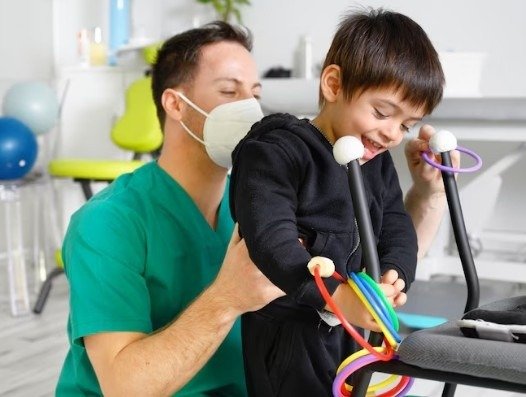Empowering Lives The Transformative Impact of Occupational Therapy.
Occupational Therapy (OT) is a dynamic and client-centered healthcare profession that focuses on improving individuals’ ability to engage in meaningful and purposeful activities. With a holistic approach, occupational therapists work to enhance the physical, mental, and emotional well-being of their clients. This article delves into the world of occupational therapy, exploring its principles, diverse applications, and the profound impact it has on the lives of those it serves.
The Core Principles of Occupational Therapy
- Holistic Approach: Occupational therapists view individuals as whole beings, recognizing the interconnectedness of their physical, mental, and emotional well-being. The holistic approach allows for a comprehensive assessment and personalized intervention plans tailored to each client’s unique needs.
- Client-Centered Care: The heart of occupational therapy lies in its client-centered philosophy. Therapists collaborate with clients to set meaningful goals and objectives, ensuring that the therapy process aligns with the individual’s values, priorities, and aspirations.
- Meaningful Activities as Therapy: Occupational therapy revolves around the concept that engaging in purposeful activities contributes to overall health and well-being. Therapists use activities relevant to the client’s life, known as “occupations,” to facilitate rehabilitation and skill development.
Applications of Occupational Therapy
- Rehabilitation and Physical Health: Occupational therapists play a crucial role in rehabilitating individuals recovering from injuries, surgeries, or chronic conditions. They focus on restoring physical function, improving mobility, and enhancing activities of daily living.
- Mental Health and Emotional Well-being: In the realm of mental health, occupational therapy addresses conditions such as anxiety, depression, and stress. Therapists work with clients to develop coping strategies, build resilience, and foster a sense of purpose through meaningful activities.
- Pediatric Development: Occupational therapists work with children to support their developmental milestones. From fine and gross motor skills to sensory processing, OT interventions help children build the foundational skills necessary for academic and social success.
The Impact on Individuals and Communities
- Enhanced Quality of Life: Occupational therapy has a profound impact on improving the overall quality of life for individuals facing challenges. Whether it’s regaining independence after an injury or managing daily activities with a chronic condition, OT empowers individuals to live fulfilling lives.
- Community Integration: Occupational therapists work beyond clinical settings, addressing challenges that individuals may face in their communities. This includes adapting environments for accessibility, promoting inclusion, and facilitating participation in social and recreational activities.
- Advocacy and Education: Occupational therapists often serve as advocates for their clients, promoting awareness and understanding of the importance of occupational therapy in various settings. Education and outreach efforts contribute to breaking down stigmas surrounding disabilities and mental health.
Conclusion
Occupational therapy stands as a beacon of hope and empowerment, championing the belief that everyone deserves the opportunity to engage in meaningful activities that bring joy and purpose to their lives. From rehabilitation to mental health support and pediatric development, occupational therapy continues to evolve, making a positive impact on individuals, families, and communities worldwide. As a profession grounded in compassion and innovation, occupational therapy remains dedicated to unlocking the full potential of each person it serves.








